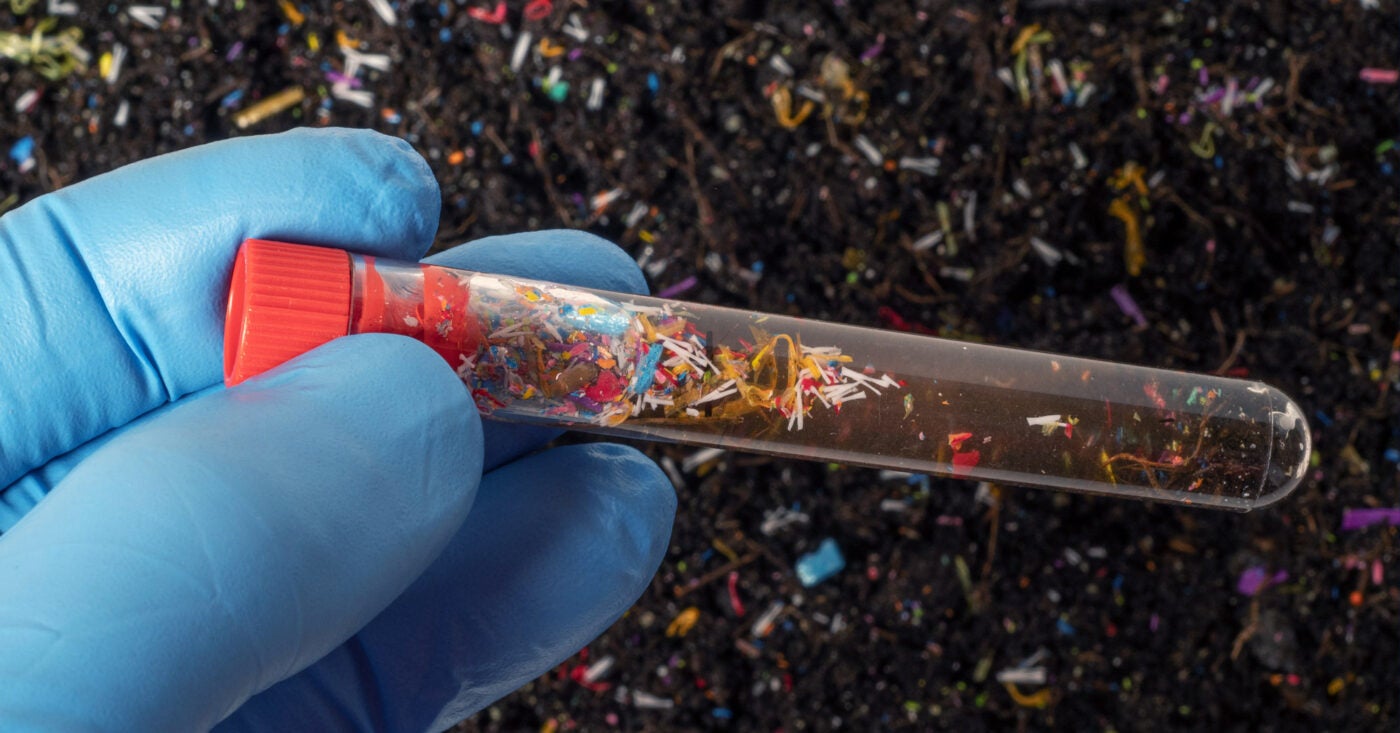
Research
Microplastics, strokes, and heart attacks
This article was originally published by Public Health Watch, a nonprofit investigative news organization. Find out more at publichealthwatch.org.
When we hear about the global plastics crisis, many of us think, understandably, of seabirds entangled in six-pack rings and beached whales whose bellies are filled with marine debris.
Awful images. But what about the effects on humans?
They’re bad, it turns out—just not as visible.
In an editorial published March 7 in the New England Journal of Medicine, Dr. Philip Landrigan, director of the Program for Global Public Health and the Common Good at Boston College, points to a new study by Italian scientists that ties micro- and nanoplastics—easily ingested or inhaled breakdown products of plastics—to cardiovascular disease. (Microplastics are particles less than 5 millimeters long; nanoplastics are invisible particles of lengths less than 1 micrometer, a unit of measurement 1,000 times smaller than a millimeter.)
Sign up for Harvard Public Health
Delivered to your inbox weekly.
The researchers followed 312 patients who underwent a procedure known as carotid endarterectomy, in which plaque in one or both of the carotid arteries in the neck is removed to deliver more blood to the brain and reduce the risk of stroke. Micro- and nanoplastics were found in the plaque excised from 58 percent of these patients, Landrigan writes, putting them at significantly elevated risk of non-fatal stroke or heart attack, or “death from any cause.”
Landrigan calls this a “breakthrough discovery that raises a series of urgent questions.” The study’s publication comes just weeks before the next convening, in Ottawa, of the United Nations Environment Programme’s Intergovernmental Negotiating Committee, which is developing a legally binding treaty on plastic pollution.
“The plastics crisis has grown insidiously while all eyes have focused on climate change,” Landrigan writes in his editorial. “Like solutions to climate change, resolution of the problems with plastics will require a wide-scale transition away from fossil carbon. The path will not be easy, but inaction is no longer an option.”
The path will be bumpy indeed. Most plastics are made from petrochemicals, which are themselves made from fossil fuels: oil, gas and coal. As demand for fossil-based energy declines, the petrochemical industry is betting its future on plastics. It will not go away quietly.
The American Chemistry Council, the chemical industry’s main trade association, maintains that the plastics crisis can be blunted by advanced recycling technologies that “take used plastics and break them down to serve as the building blocks for new products, including new plastics.”
In a report last month, however, the Center for Climate Integrity, an advocacy group, said that “Big Oil and the plastics industry have deceptively promoted recycling as a solution to plastic waste management for more than 50 years, despite their long-standing knowledge that plastic recycling is not technically or economically viable at scale.”
Landrigan told Public Health Watch that the groundbreaking Italian study “raises the stakes” in the debate over plastics, the use of which is expected to nearly triple by 2060. Negotiators in Ottawa, he said, had “damn well better do something.”



